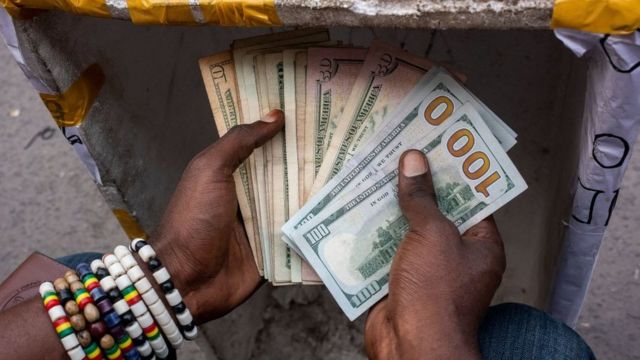Dollar scarcity forces Kenyan banks to "ration" sales to manufacturers, importers
Due to growing dollar scarcity across Kenya, the Central Bank of Kenya (CBK) has directed commercial banks in the country to ration sale to manufacturers, importers and others in need of the hard currency.

Due to growing dollar scarcity across Kenya, the Central Bank of Kenya (CBK) has directed commercial banks in the country to ration sale to manufacturers, importers and others in need of the hard currency.
Business Insider Africa gathered that the banks have already begun complying with the directive, as confirmed by some currency traders in the East African country. At the moment, there is a daily cap of $50,000 for most businesses looking to buy dollars at the official exchange rate.
READ: 10 African currencies with the highest exchange rates against the dollar in Q1 2022
According to reports by local media, the dollar shortage was caused by increased demand of the currency, as manufacturers intensify shipments of raw materials and equipment following economic recovery in the country. Also, efforts by Kenyan companies to pay dividends to their foreign investors have contributed to worsen the dollar crisis.
Meanwhile, Kenya's apex bank decided to impose a cap on dollar purchases in a bid to protect the country's foreign reserves. Unfortunately, manufacturers are already feeling the impact of the restriction.
READ: These 20 African countries are on the World Bank's low income list, due to low GNI per capita
While commenting on the development, the Kenya Association of Manufacturers (KAM) said inadequate access to dollars have been negatively affecting its members, as they are now unable to settle most of their obligations to foreign suppliers. Unfortunately, the resultant strained relationships between Kenyan manufacturers and their foreign suppliers is happening at a time when there is a fierce competition for raw materials on the global stage due to supply chain constraints.
READ: 15 African cities with the highest cost of living index scores
"One USD (dollar) purchase transaction used to take one working day. However, due to the daily cap manufacturers now have to plan 2-3 weeks in advance, depending on the dollar requirements for specific consignments... Planning in advance for foreign currency payments has resulted in an increase in working capital," said KAM's Mucai Kunyiha, who spoke to Business Daily via email.
The association went further to explain that the situation has also led to a drastic increase in the cost of doing business in Kenya. And the ripple effect of this would be higher prices of essential goods and services which have already been long-standing problem in Kenya and across the region.
It's important to point out that the problem of dollar scarcity is not peculiar to Kenya. Across Africa, central banks have always had to ration dollar sales due to endless demands. As a result, those in need of dollars most often resort to the parallel (black) market to meet their demand.

















